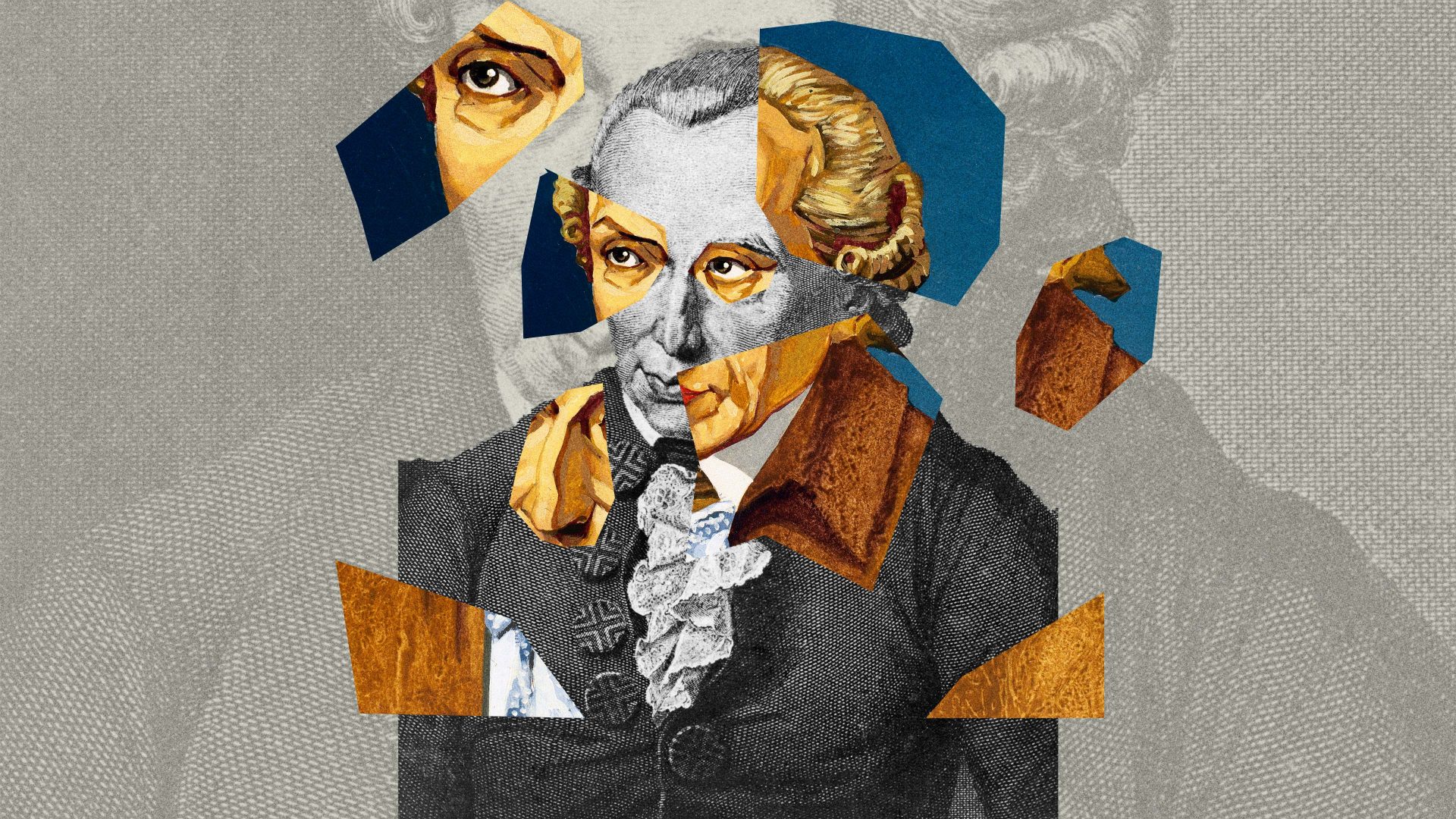It’s Immanuel Kant’s birthday on Saturday. Born on April 22 1724 in Königsberg, in what was then Prussia, he died there 80 years later, barely having left the city that in 1946 became part of the Soviet Union and was renamed Kaliningrad. Today it is in Russia.
Most English speakers, knowingly or not, mispronounce Kant’s name. A true story about the American philosopher Sidney Morgenbesser brings this home. One day he was leaving the New York subway with his pipe in his mouth, getting ready to light up. A police officer stopped him and told him that he wasn’t allowed to smoke in the subway. Morgenbesser replied that he wasn’t smoking and in fact was leaving the subway, not going into it.
The officer insisted that he should take the pipe out of his mouth, saying: “If I let you do it, I’d have to let everyone do it.” To which Morgenbesser replied, “Who do you think you are, Kant?” The police officer heard something different from the name of the philosopher and took him to the police station, where Morgenbesser managed to argue himself out of being charged by explaining Kant’s Categorical Imperative to him.
The important feature of Kant’s moral philosophy that Morgenbesser had in mind was that for Kant the principle on which we act or refrain from acting, the maxim, has to be universalisable, that is it should hold not just for us, but for anyone in a relevantly similar situation. If it isn’t universalisable, it isn’t moral. You shouldn’t make exceptions.
If lying is wrong, it is wrong for everyone. If torture is wrong that holds for everyone. If killing is wrong, never do it. If something is wrong, it is wrong whatever the consequences. Kant, unlike the utilitarians, believed that no beneficial consequences could be used to justify an action: lying, torture, and killing are just wrong, even in situations where benefits to the majority might ensue.
That is an aspect of his Categorical Imperative: moral judgements aren’t hypothetical, they don’t take the form “if you want x, do y”, but rather are categorical and absolute, not revisable. No desirable results that might follow from breaking a rule can change that. You can’t torture someone to find the code for the ticking bomb even if that will save a hundred lives.
In a notorious essay called On the supposed right to tell lies from benevolent motives, he used the example of a crazed killer coming to your door, asking whether your friend was inside. On Kant’s view – and this was controversial in his own day – it would be wrong to lie even in those circumstances (though you could remain silent). Lying is morally wrong, period.
In What is Enlightenment? Kant used a Latin phrase, taken from the Roman poet Horace, sapere aude (dare to know) as a motto for the period, calling upon his readers to have courage to use their own reason to discover the nature of reality rather than accept “truths” handed down by authority, an attitude which presumably makes him a subversive thinker in today’s Russia where independent reporting of Vladimir Putin’s war in Ukraine has been criminalised and the people are denied access to anything that contradicts the official Kremlin narrative.
There is some irony that Kant’s moral philosophy – which emphasised human reason and dignity, opposed treating other people as merely a means to an end rather than as ends in themselves, and was part of the intellectual tradition from which the modern conception of human rights emerged – was conceived on what is now Russian soil. I wonder how long it will be before Kant’s books are burned there.
Next year’s tercentenary of Kant’s birth will be fascinating, not just for how that is handled in Kaliningrad, but also elsewhere. Despite his emphasis on treating others with respect, and not exploiting them, scattered throughout his writings are examples of sexism and racism. He thought that women were inferior to men, and white “races” superior to others. That is obviously inconsistent with his expressed moral philosophy (unless women and people who are not white are excluded from the category of rational agents), and the philosopher Charles Mills has called it out as an example of what he calls “racial liberalism”.
As Mills put it in an interview: “Kant was a racial liberal in the straightforward old-fashioned racist sense – he said we should give respect to all persons while simultaneously declaring that blacks and Native Americans were natural slaves”.



